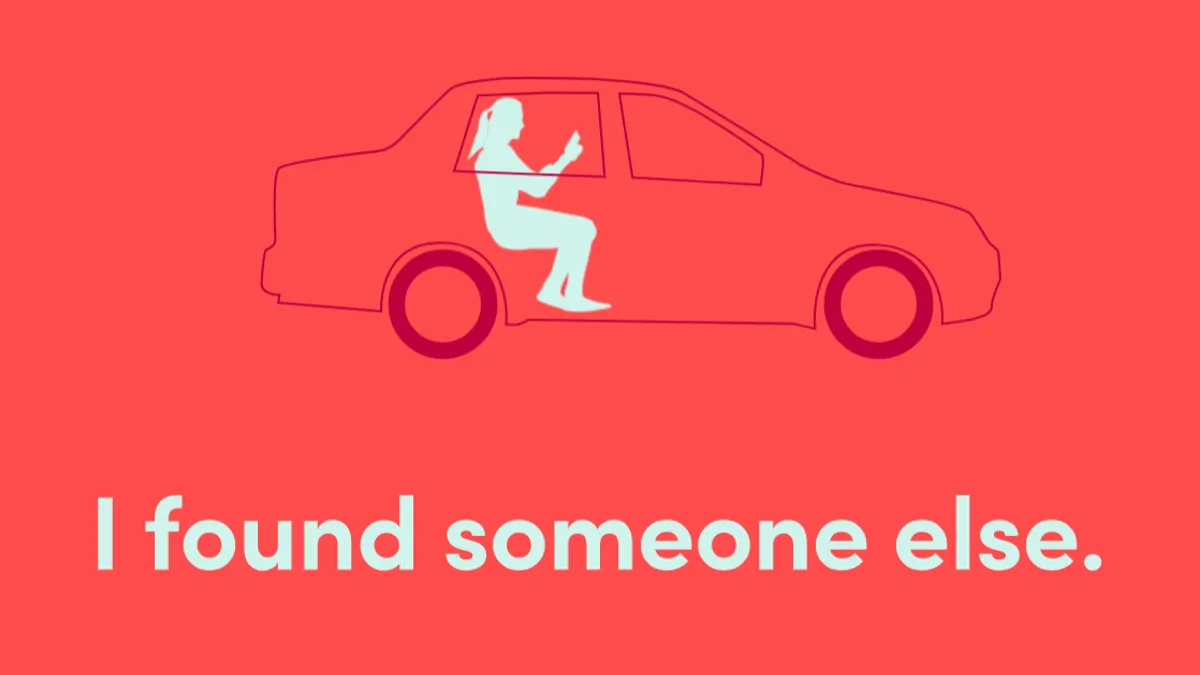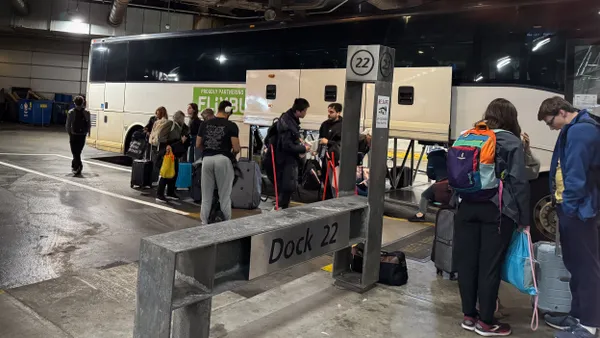Dive Brief:
- Lyft will offer transportation credit for its Lyft Shared service, Zipcar, public transit and bike-share in more than 35 cities across the country to subscribers who promise to stop using their own cars for a month.
- The "Ditch Your Car" promotion will reward 50 randomly-selected entrants per city (and 100 in Los Angeles) for scrapping their personal cars from Oct. 8 to Nov. 6. The total value of the credits vary by city.
- The expansion follows a similar month-long promotion in Chicago this summer. After that challenge, 90% of the participants said they no longer use their personal cars to go to work or out for pleasure, according to an emailed statement from Lyft.
Dive Insight:
Lyft is evolving beyond its ride-sharing roots to becoming a full mobility company encouraging its customers to get around without cars. It integrated public transit information into its app earlier this year, acquired bike-share company Motivate and launched a scooter service in Denver and Santa Monica, CA, with plans to expand to more cities. The efforts are part of an industry-wide shift to embrace more transportation options, as Uber has also made similar acquisitions.
The month-long promotion will encourage winners to see how those options can fit into their lifestyles — and the inclusion of public transit credits notably helps drive new riders to transit amid tension over whether Lyft and Uber have been taking customers away. The Lyft credits will also go to shared trips, fitting into the company’s goal of having 50% of all Lyft rides being carpool trips by the end of 2020.
“We are on the brink of a massive shift in personal transportation, moving away from ownership and into transportation as a service. Ditch Your Car is an extension of the mission we’ve been committed to for over a decade,” Lyft co-founder and president John Zimmer wrote in a blog post.
Still, it’s unclear whether the availability of ride-sharing has moved consumers to get rid of their personal cars. Although Lyft advertises that 250,000 passengers gave up their cars in 2017, a report from the School of Geographical Sciences and Urban Planning at Arizona State University found that ride-hailing services made only a marginal dent in car ownership, with those who ditched their cars having started as “marginal” auto users.











